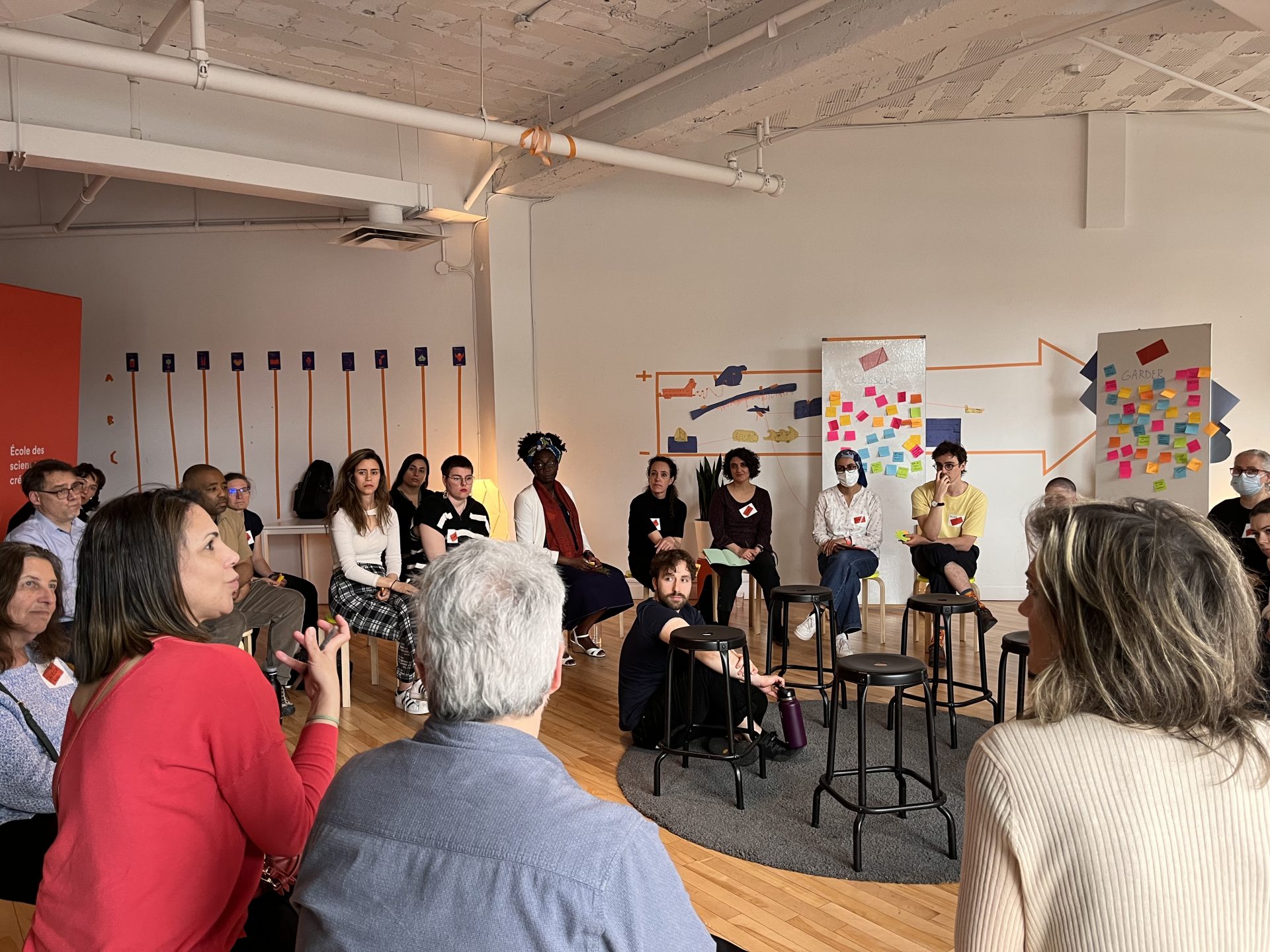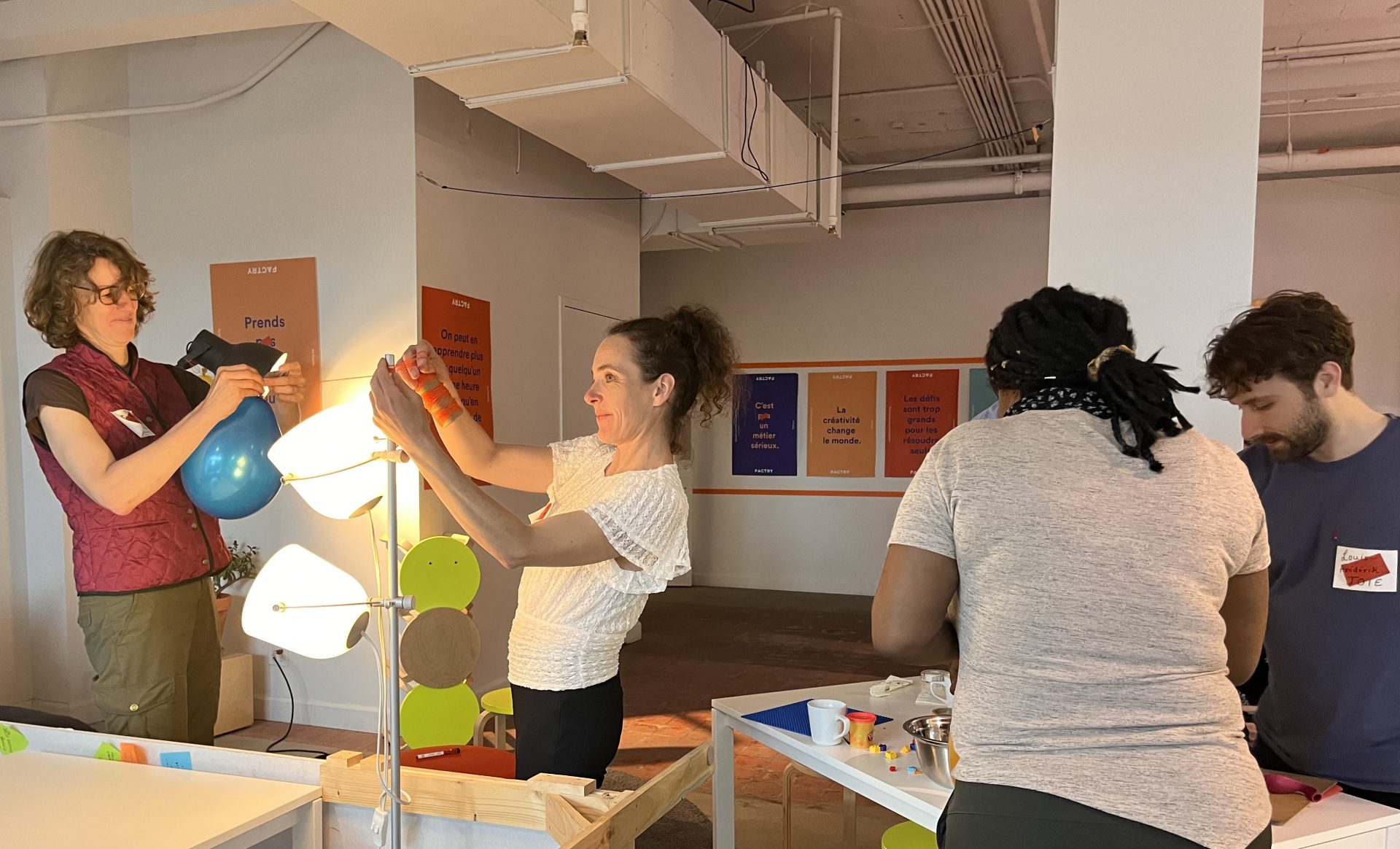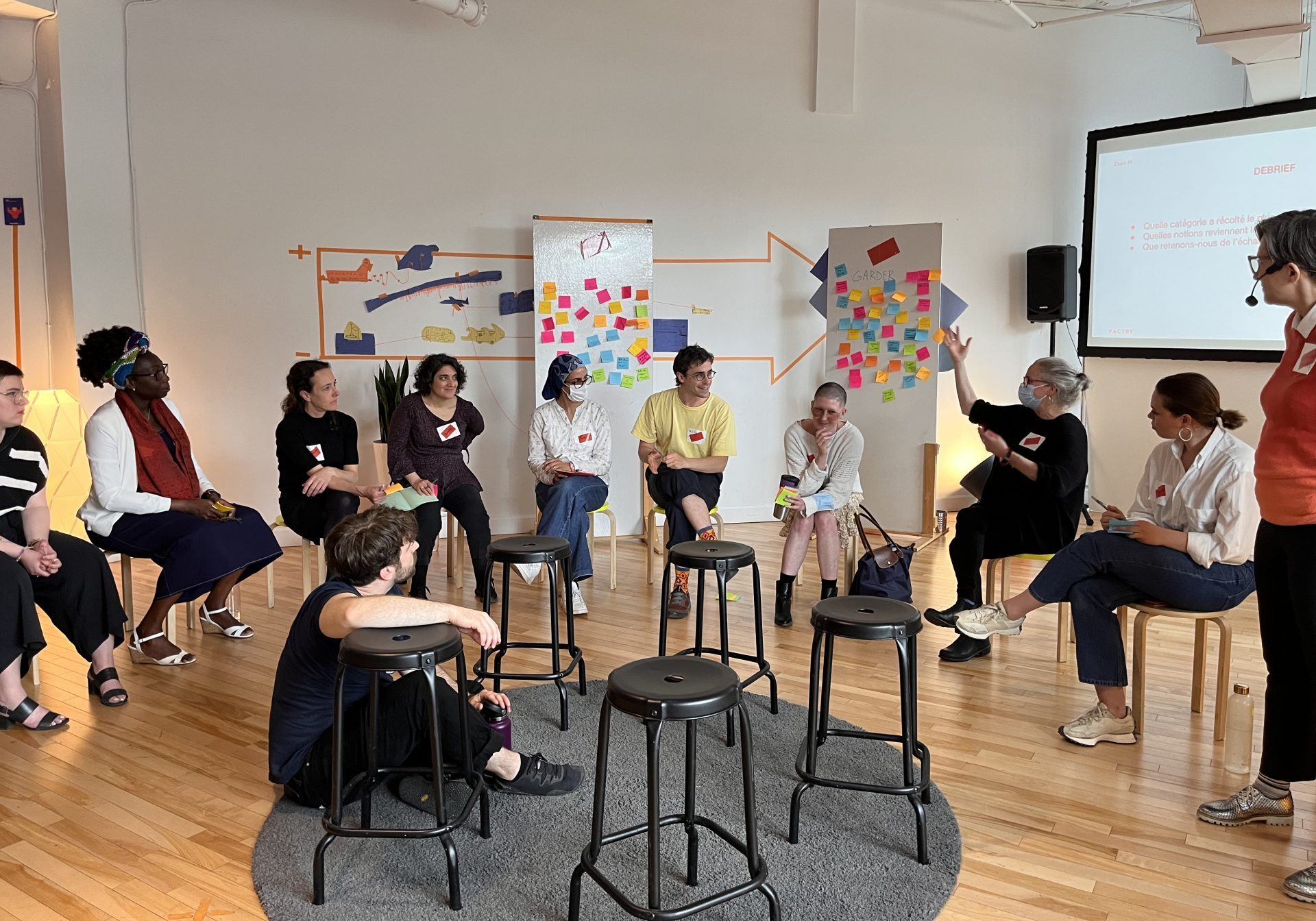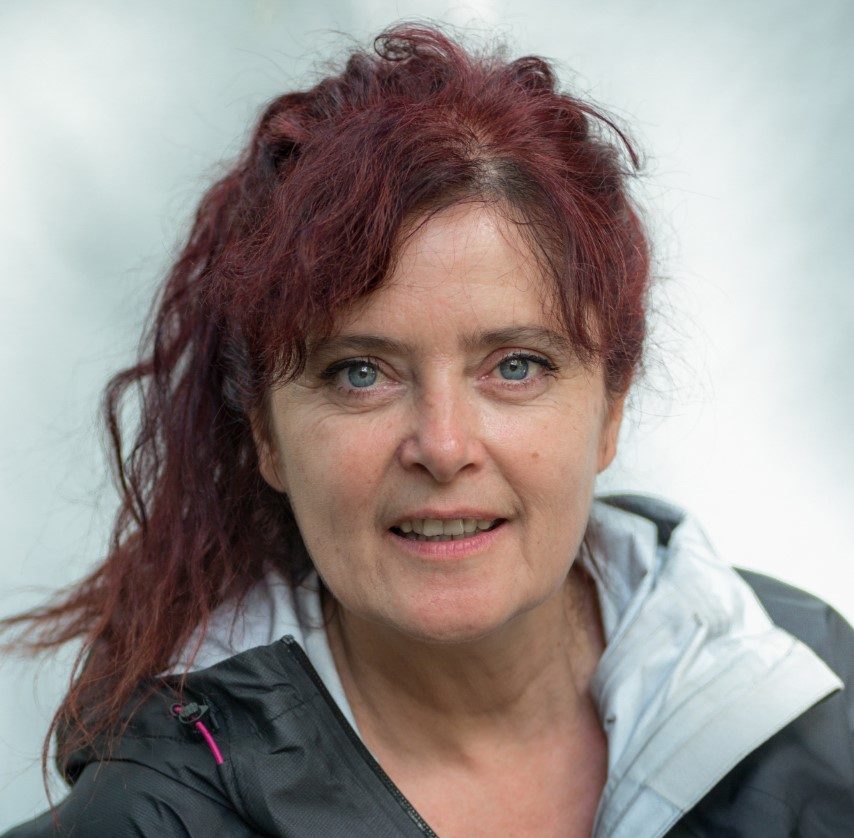Educating students and professors on soft skills and creativity in partnership with La Factry: this is a new initiative at the Université de Montréal that began last year. Interview with Catherine Fouron, head of professional development in the assistant vice-rectorate of Graduate and Postdoctoral Studies.
This year, you approached La Factry to provide training for graduate and post-doctoral professors. What was the context?
Our connection to La Factry actually began in 2021 when we developed a two-day summer school for PhD and post-doctoral students together. The idea was to demystify creativity, often associated with visual arts or design, for example, and to show them the importance of adopting a creative posture and soft skills for their professional future. About twenty of them, from all disciplines, from science to literature or occupational therapy, registered for this training and were very impressed by the training’s purpose. They all proved to be creative in this space designed to think differently. Many told us, ” At university, you never hear about team collaboration!”
What was the student response to this training?
The participation rate was quite low, whereas there is a lot of interest when I offer more academic training on university culture or pedagogy, etc. I thought to myself: maybe the message did not get through to students for whom the most important thing is to publish scientific articles, to focus on the subject of their thesis. In this context, creativity is never addressed as a relevant skill. I realized that, in order for them to embrace it, teachers had to embody creativity and then pass it on to their students. That’s why we came back with La Factry last May to give a similar training to about thirty university professors, including a good number of graduate students. So, one year later, we are perpetuating our approach and changing the university culture among professors and thesis directors. Of course, the protocol was respected: three pedagogical advisors also attended the training, as well as a dozen students during one day of the two-day training. One of the teachers said after the experience, “My department chair should take this training too!”
There was a fear that there would be some reservation on the part of the students during this training, but it didn’t happen. We couldn’t even tell the students from the teachers. Everyone showed the same reactions; emotion, hesitation, amusement, fear…

Why do you want to bring creativity and soft skills into the university curriculum?
In the past, you did your doctorate and became a university professor. Today, there is a mismatch between the number of doctoral students and the number of positions to be filled. We know that about 80% of graduates will not have a university job. Hence the need for each of them to develop cross-disciplinary skills that will serve them later in their jobs. Having a doctorate is no longer enough; other essential skills such as leadership, communication, collaboration and creativity must also be developed.
What was the methodology of La Factry?
We worked in co-creation in the form of workshops. During one of them, we drew up a portrait of a first-generation student and his needs: how can the university help him? With cardboard and plasticine, we created the ideal universe where he could fit in: a rainbow to express benevolence, a community garden as a place of exchange. We also imagined the university as a means of transportation: a strong but slow liner that is difficult to move. To illustrate the departments, we evoked the stationary bicycle, the sailboat and even the train. In the end, our ideal university prototype was open, innovative, and inclusive. This exercise allowed students to reconcile themselves to the rigidity of the institution and faculty to equip themselves for change.

The Université de Montréal is showing leadership by integrating this culture of innovation in an environment often considered reluctant to change. Is this a first in Quebec?
Yes, we are pioneers in this area. It must be said that creativity was the neglected area of our expertise. Personally, I’m totally sold on it; I like the idea of getting off campus and working in a new, different environment. When you change your environment, you change the way you think. The university also has a responsibility to be an agent of change and to prepare its students for their professional future by cultivating a culture of innovation.
Are you already seeing the impact of this training?
It’s a little early for that, but the feedback we’re getting from participants is very positive. My philosophy is that you can’t change everything, but if everyone does a little bit, you can transform the university so that it meets the needs of students who are looking to perform better in the job market. We have taken a step forward. Each new generation of professors will bring new ways of teaching and added value beyond their discipline. As a bonus, injecting creativity into the university will lead to student retention. When we tell them “do it your way,” it leads to more balance and positive reinforcement.
Participant feedback:
Alexis, Environmental Science student
“At the university, there are institutional issues that I can’t personally control. But, after this training, I see that professors are much more open than I expected to transform their education methods and leave more room for exchange.”
Jean-Noël, professor at the School of Public Health
“During the training, I realized that we can do serious learning with much less formal, more playful approaches. We can get the messages across in a different way than through a lecture.”
Karine, student and lecturer in French Education and Didactics
“I loved the fish bowl experience, it appealed to me right away, because it’s a way to work on oral communication, but also on content in an innovative way. I’m putting this in my toolbox and will definitely use it in college!”
“I’m trying to de-center myself from traditional education by putting the learner at the center of their learning, moving away from the lecture to find ingenious teaching methods that better meet their needs.”

